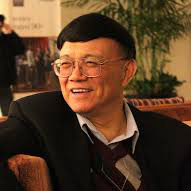Among historical studies of political movements of contemporary China, laogai (reform through labor) might not be a hot topic. Perhaps this is because laogai is more than a subject of history; it is also a pressing issue of human rights and ongoing politics that needs to be tracked at all times. Of course, it is not a cold spot either, because anyone who studies contemporary Chinese politics will naturally touch on laogai since it results from all political movements and is a tragic end for many victims of these movements.
Mr. Harry Wu Hongda, the founder of the former Laogai Research Foundation, was not only a victim of laogai, but also a tireless researcher. Because of the continuous demands from all over the world for information on laogai, he always wanted to build an online database with the original archives of laogai that the foundation had collected for years, which would benefit both scholars and common readers. In 2012, upon invitation by the Laogai Research Foundation, I went to Washington, D.C. to take part in a conference on the Great Leap Forward and Great Famine. There Mr. Wu suggested that I help the foundation to build a laogai archives database after the completion of our Cultural Revolution, Anti-Rightist Campaign, and Great Leap/Great Famine databases. However, I was still occupied at that time with the compiling and editing of our Land Reform database, the last, though chronologically the first, database of our four-part History of Contemporary Chinese Political Movements database series. Therefore, I could only promise to help him with his project after we finish ours. Unfortunately, before we had a chance to work together on his project, Mr. Wu passed away in 2014.
In the summer of 2018, as I joined the board of directors of the new Laogai Research Foundation upon invitation, I was expected, among other things, to lead the projects of building a virtual laogai museum and an online database of laogai archives. This was how the database of laogai archives was initiated. Here I would like to thank the members of the new Laogai Research Foundation board of directors, who, immediately after the formation of the new board, commissioned professionals to collate and catalogue the existing archival materials. Their work has made it possible for the materialization of the database in slightly more than a year.
The current collection in this database includes about 500 original documents. About a half comes from the collection of the former Laogai Research Foundation, and the other half from the documents collected under the leadership of the new board of directors. By “original documents”, we mean primary historical documents, excluding secondary materials like interviews and memoirs. These documents are classified in four parts as follows.

